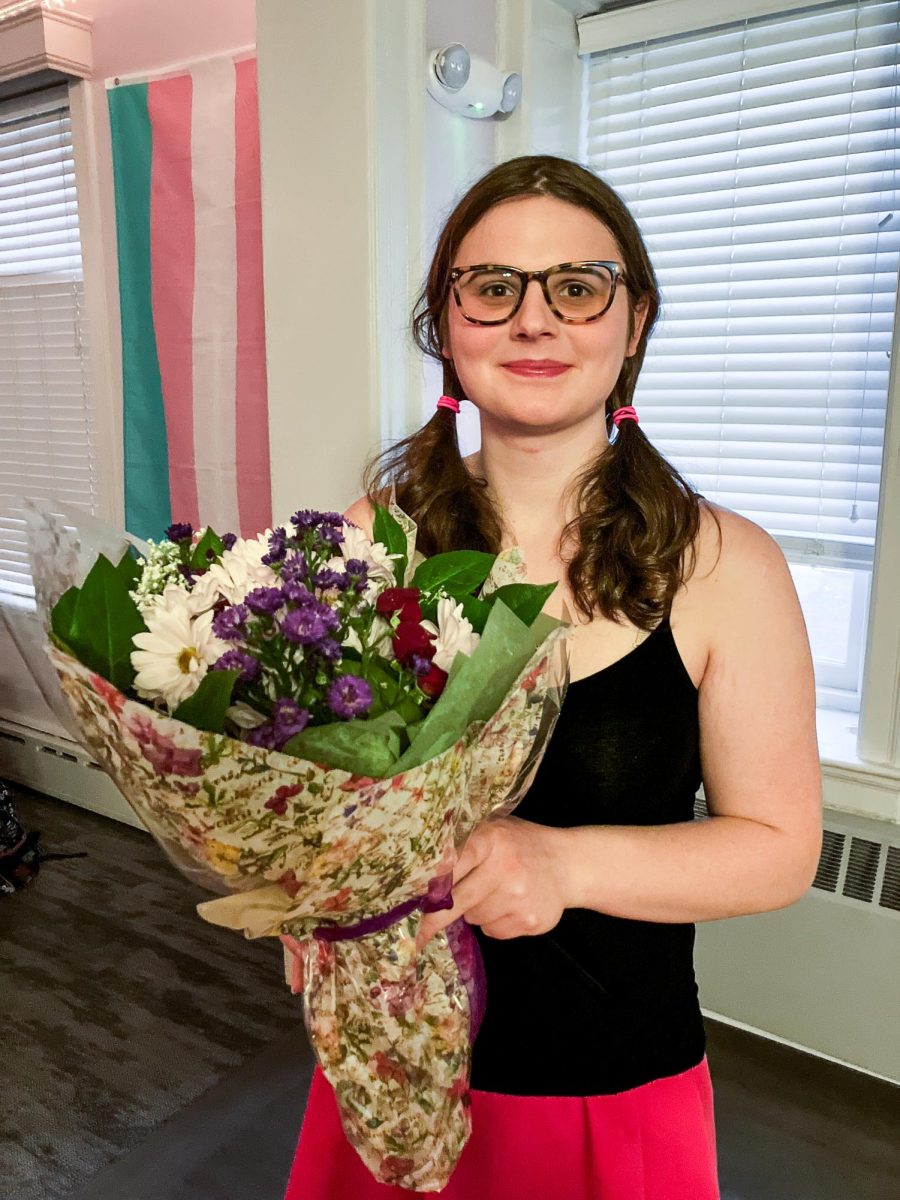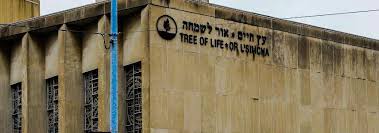What was supposed to be an informal and educational gathering at Lafayette’s Hillel house last Saturday night took a dramatic turn when in Pittsburgh that morning, 11 people were killed in a synagogue.
Those deaths changed a group activity into an emotion-filled memorial. Members said that although they were devastated, there was comfort in coming together. According to President of Hillel Society Gabrielle Tropp ’20, it was “a beautiful community moment.”
The service consisted of a Havdalah service, a healing prayer for the community and the people injured, a mourning prayer and a conversation where members could discuss feelings and emotions following the attack, Tropp said. Attending the service were several students, faculty members, College Chaplain Alex Hendrickson and President Alison Byerly.
“It’s a tremendously strong community and it seemed to me that people took a great deal of comfort from coming together and talking about the impact this has on them,” Byerly said. “It was a very difficult situation for everyone.”
“A lot of people were expressing that it’s a scary time to be in America at all just because people are under attack. Susannah Heschel was here on campus last week. She’s a pretty well-known Jewish scholar, and she talked all about human dignity and what it means to be dignified,” Tropp said. “We were all just trying to say that this shooter was trying to take away the dignity of this Jewish community, but their response just proved how dignified they were.”
Although the discussion was emotional and feelings of disillusionment were expressed, the main takeaway from the memorial was about trying to “push towards being a stronger community,” according to Tropp.
While reactions from members of the college’s Jewish community varied, emotions tended to range from sadness to confusion to outrage.
“I think, as a person who is Jewish, this sort of news resonates with me more because it was directed at a group with which I identify,” said mathematics professor and Hillel faculty advisor Ethan Berkove.
Vice President of Hillel’s Religious and Cultural Education Team Dan Goodman ’20 shared similar sentiments.
“I hate to say that this is not an isolated incident, and it’s the first real incident of hard anti-Semitism in the States… but it’s been happening to other groups and being a Jew and having this happen to my own community, it only makes me feel more for the other communities that have had this happen,” Goodman said.
According to Goodman, what made him most angry was the people affected by the attack and “how much it was politicized after.”
“What made me the most angry was… [one of the victims] was a Holocaust survivor,” he said. “To survive that and then be shot at your temple by some guy wanting to take his anger out on Jews, that angers me.”
Goodman added that seeing the shooting and tragic deaths used as a political tool saddened him, when the situation needs to be treated with respect.
Religious leaders within the Jewish community at the college gave their reactions to the tragedy.
According to Rabbi Michael Singer, Lafayette professor and rabbi at Congregation Brith Sholom in Bethlehem, although he said that he experienced an act of anti-Semitism in the Easton community in the past weeks, he remains hopeful.
“[Anti-Semitism] is not going to go away, but that doesn’t mean we give up trying to make it better and build more bridges of understanding,” Singer said in a phone interview. “We need to come together and say ‘enough is enough.'”
History professor Robert Weiner explained how the shooting at the Pittsburgh synagogue is part of a larger issue.
“This is an attack on George Washington and Thomas Jefferson’s view of America. It hit the Jews specifically this time, as it has done a lot more recently, but it’s an attack on all of us,” said Weiner. Weiner noted President Donald Trump’s influence in facilitating the “cultural moment” that exists in America.
Rabbi Melody Davis, local rabbi at the Temple Covenant of Peace in Easton and professor of Hebrew at the college, also commented on the political culture of this time. She noted that she is frightened that “with the current political climate, it is appropriate and okay to display this kind of rampant hatred,” she said.
Pittsburgh officials and residents shunned Trump’s visit to their city after the shooting, “amid accusations that he and his administration continue to fuel the anti-Semitism that inspired Saturday’s massacre inside a synagogue,” according to the Washington Post.
Nearby, at least three hate groups have been known to exist in the Lehigh Valley. Recently, the Karl Stirner Arts Trail was vandalized with drawings of swastikas and the N-word. These are issues that have led to conversations about security on campus. While many said that security is not often of major concern on campus, there are moments when fear becomes more prevalent.
“When there was that swastika on the Arts Trail, we sort of had this moment where we were like ‘it’s here, it’s in our town,’” Tropp said. “I think most of the time, we get to live our lives in this college bubble, but every once and awhile we’re really reminded pretty strongly that there are people who don’t want us here.”
According to Director of Public Safety Jeff Troxell, although he does not see any threats to campus following the attack in Pittsburgh, Public Safety officers been directed to patrol the Hillel House more often than usual in the weeks following the attack.
Weiner said that support for and amongst the Jewish community in the aftermath of the tragedy has been especially apparent.
“Every once in awhile you get whacked and kicked, so you stand up and you adjust to it and you build a bigger and deeper community,” Weiner said.
Weiner, who has seen the Jewish community at the college expand and change in his 50 years here, described how Lafayette has become more multicultural.
“About 25 years ago, the Hillel House was moved from our private ownership to a rented place on campus,” Weiner said. “As we got closer to campus, it made it easier to open the doors to everyone, but that also happened because the whole culture changed. Lafayette became a culture of inclusion that we all worked together to construct as proactively as we possibly could.”
According to both Weiner and Tropp, the Hillel discussion last Saturday night expressed deep concerns from students, but also hope for the future.
“Everyone was just trying to say that we need to stay hopeful and we need to remember to love our community and spread positive vibes,” said Tropp.
“I am fearful and I am hopeful, because we can create better space and share it,” said Weiner.
Hillel services on Friday will be led by Jordan Karp ’22 and Jay Asher ’22. The services will be open to other religious groups on campus, according to Goodman.
Additionally, proceeds from the Hillel Society’s Bagel Brunch on Nov. 6 will contribute to a GoFundMe in support of the victims of the Pittsburgh synagogue shooting. The money from this GoFundMe will go toward areas like funerary expenses, medical bills and repairing the synagogue.

























































































































